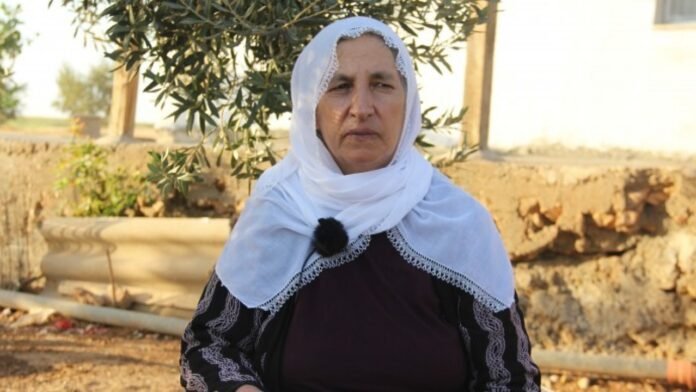Prosecutors in Turkey’s southeastern Diyarbakir province have found no legal grounds to initiate an investigation into claims made by a 64-year-old woman of severe mistreatment by law enforcement officers, the Artı Gerçek news website reported on Monday.
Adler Samur claims to have experienced brutality while initially held in police custody, including beatings all over her body with metal batons and strikes to a surgically treated leg, and threats to kill her. The mistreatment allegedly continued while she was held in detention, where she said she was put through an unlawful strip-search.
Despite strong evidence supporting her claims, including medical records and eyewitness testimony, the Suruç Public Prosecutor’s Office dismissed the case, stating that there was “no concrete evidence” to proceed against the counterterrorism branch of the Urfa police and declining to pursue any further investigation.
Samur’s lawyer, Ali Aslan, appealed the prosecutor’s decision. He referenced European Court of Human Rights (ECtHR) rulings on the prohibition of torture and urged Turkish authorities to uphold procedural fairness by conducting a complete and impartial investigation of the actions of the officers involved.
Samur was detained along with her husband, Mehmet Samur, on March 2, 2023, in Suruç, Urfa province, following a police raid on their home.
The police operation occurred after a February 24 clash in the village of Karacurun between Turkish soldiers and a group supposedly linked to members of the outlawed Kurdistan’s Workers Party (PKK). The PKK has been designated as a terrorist organization by Turkey and several Western allies.
During the raid, Samur’s husband was also allegedly subjected to police brutality, and apparently sustained visible injuries to his body.
Adler Samur said while in custody, she was coerced into identifying other suspects from photographs and was threatened with torture if she failed to comply. She claims that the police also forced her to give up information on her daughter, who she acknowledges joined the PKK some years ago.
Samur alleges that her mistreatment continued after her transfer to Urfa No. 2 Type-T prison, where she was subjected to a strip-search and performing difficult and humiliating physical movements. Despite complaints of pain and injuries, she was only provided with minimal medical care, with no official documentation of her injuries.
Released on September 23, after her first hearing at the Urfa 5th High Criminal Court, Samur described enduring seven months in prison under conditions she claims were marked by intimidation and neglect. Her husband, Mehmet Samur, remains in prison.
Torture and ill-treatment of citizens in Turkey have been longstanding concerns for domestic and international human rights organizations. After a failed 2016 coup, the Turkish government intensified crackdowns on perceived political opponents, which led to a new surge in reports of torture in law enforcement custody.
Human rights groups have accused Turkish authorities of using torture as a tool to extract confessions or intimidate political activists, journalists and members of the Kurdish minority. Reports of mistreatment include beatings, sexual abuse and prolonged solitary confinement. In recent years, demonstrations against government policies, particularly those related to labor rights, environmental issues and political freedom, have increasingly been met with violent responses from security forces.
Turkey’s legal framework regarding torture and ill-treatment has also been the subject of significant criticism for deficiencies. While the Turkish Constitution addresses torture, other offenses are inadequately covered. Concerns were raised about the absence of explicit prohibitions against confessions obtained under torture within the Turkish Penal Code, and questions about whether protections extend sufficiently to witnesses.
Turkey’s government has consistently denied sanctioning torture, asserting that it operates under strict anti-torture laws. However, critics argue that the enforcement of these laws is inadequate, and impunity for security forces remains a significant problem. International bodies, including the ECtHR, have frequently urged Turkey to improve conditions in detention centers and ensure accountability for human rights violations.















